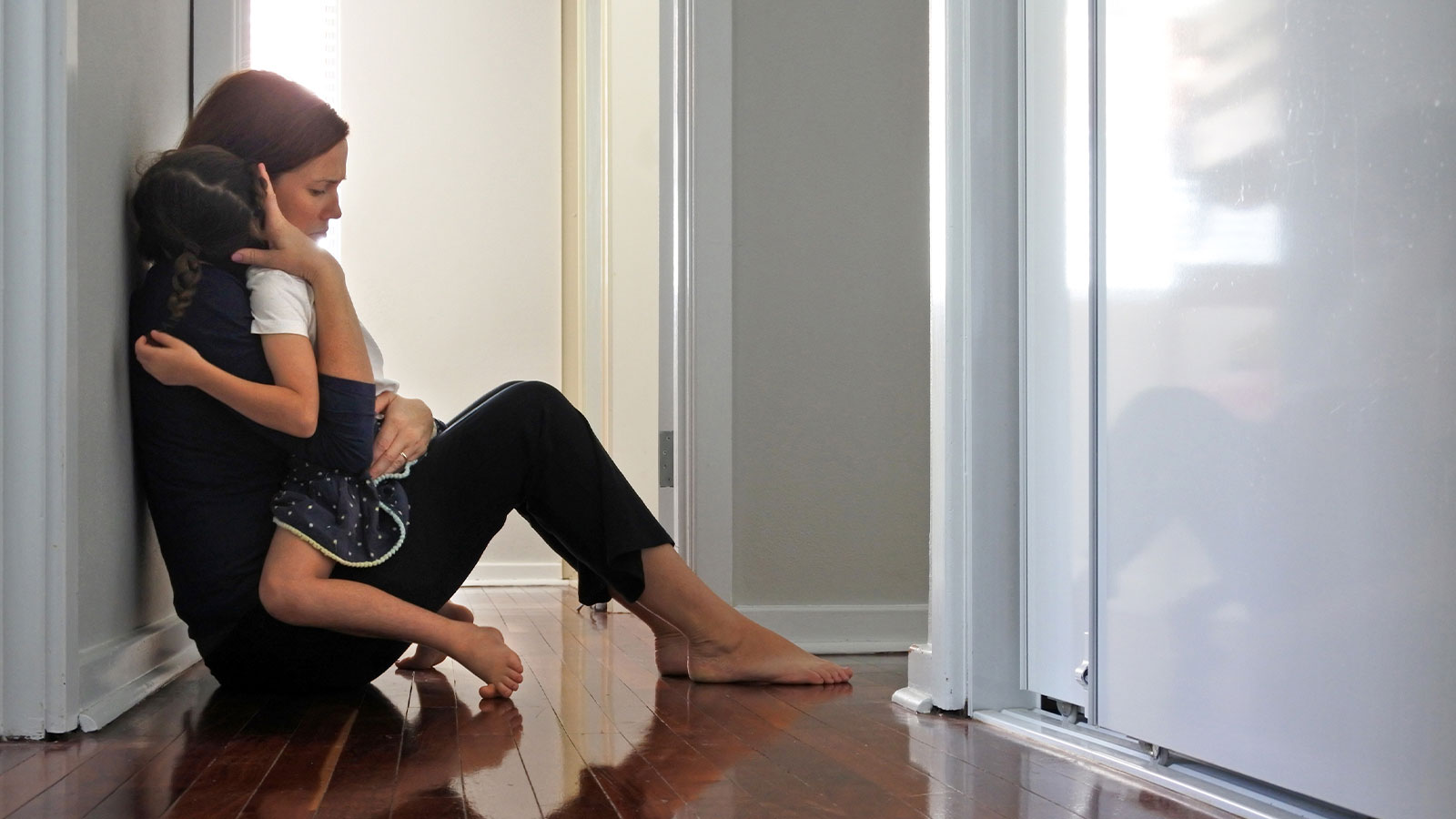How to Face the Holidays After Losing a Parent

The holidays are often painted as joyful, filled with family gatherings, laughter, and cherished traditions. But when you’ve experienced the death of your mom or dad, the season can feel completely different. The lights, the music, the familiar scents and scenes—they can all trigger waves of grief, sadness, and even guilt for not being in the “holiday spirit.”
As Michael, whose mom died, shares: “I was struggling during those holidays, [wondering,] Why am I here? I didn’t feel like I was celebrating anything or in a celebrating mood. As for Thanksgiving—I’m not thankful at this point in my life. And Christmas? I’m not getting anything I’d value.”
At GriefShare, we understand how overwhelming this time can be. You’re not just facing a holiday; you’re facing it without someone who shaped your world—without the person who likely made this time of year so special. That weight is real, and your feelings are valid.
This article offers practical steps you can take to navigate this season after the loss of your parent. However, it’s important to know that while the holidays in grief can feel lonely and painful, GriefShare is here to walk alongside you. Whether through our grief support groups or free online resources, we’re here to give you the tools and support you need to move through your grief in a healthy, healing way.
Honoring your parent’s memory brings comfort
 Grief has a way of showing up uninvited, especially during the holidays. Maybe you thought you were doing okay, having more good days than bad. Then suddenly, a song or a holiday decoration hits like a wave. “I had felt like I was moving forward, and on Christmas Day I went back,” says Rhonda, after her loved one’s death. The truth is, grief isn’t linear. Some days might feel manageable, others unbearable.
Grief has a way of showing up uninvited, especially during the holidays. Maybe you thought you were doing okay, having more good days than bad. Then suddenly, a song or a holiday decoration hits like a wave. “I had felt like I was moving forward, and on Christmas Day I went back,” says Rhonda, after her loved one’s death. The truth is, grief isn’t linear. Some days might feel manageable, others unbearable.
Other people who’ve experienced the death of a parent have discovered that finding ways to honor your parent’s memory can bring comfort, focus, and a sense of connection amid the emotional waves. Consider one of these suggestions:
Create a new tradition
Consider starting a new holiday tradition that reflects your parent’s spirit. This could look like hanging mementos on the tree that represent your parent’s hobby (a fishing lure? a cookie cutter?), serving their favorite dish (pizza? apple pie?), lighting a special candle in their honor, or watching a movie they loved.
For Bee, whose mother died, her family started the tradition of saying a special prayer of gratitude for the memory of Mom. “Every Thanksgiving, we include her in our prayer. It’s a prayer of thanksgiving to God and a prayer of thanksgiving for her life.”
Share stories
Take time during family gatherings to share stories about your mother or father. Reflecting on happy memories can help keep their presence alive in the hearts of everyone who loves them, as well as make your mom or dad a part of the moment.
Michael talks about how he kept his mom’s memory alive for his children, who had never gotten to meet her: “I would talk about [my mom] to my kids. [I’d say], ‘I’m sure she wishes she could be here, but she can’t.’ I shared stories with my kids quite a bit so they’d have a sense of who she was.”
Wanda, whose dad died, shares: “During Thanksgiving, we talk about the good memories—about how my father always wanted to cook sausage, bacon, fried potatoes, and biscuits for Thanksgiving breakfast. He always wanted us to be together on Thanksgiving.”
Give back
Volunteering or donating to a cause your mom or dad cared about can be a powerful way to honor their legacy while helping others in need this season.
Karen shares how helping others in her parents’ honor was a blessing: “Because my parents died together, we did a lot of things in their collective memory. We sponsored a [kids’ sports] team in their name. We helped redecorate the nursery and preschool rooms in our church … and helped buy a handbell set for the church. That would’ve made them so happy.”
The holidays are ripe with opportunities to volunteer or donate. To see what’s available, reach out to local churches, shelters, community centers, libraries, nursing homes, and animal rescue centers.
Write a letter
Writing a letter to your mom or dad can be a cathartic way to express your feelings, share updates about your life, or simply tell them how much you miss them. For example, you might write about what you’re feeling this holiday season without them, the traditions you miss sharing with them, and the different ways you are honoring their memory.
Trying these coping tools can help
Before going on a road trip, you likely plan your route to help you navigate to your destination. In the same way, knowing what coping strategies are available will help you get through the intense emotions that the season may trigger.
Here are ideas:
- Know it’s okay to attend—or not attend—holiday gatherings: You don’t have to force yourself to participate in every holiday event. It’s okay to decline invitations or leave gatherings early if you’re feeling overwhelmed.
If you do attend, have a plan in place for leaving if emotions become too much. You could drive separately or attend with someone who can run interference for you if conversations become uncomfortable. And talk with the host in advance about having a place where you might excuse yourself to be alone, if needed. - Prepare answers beforehand: The holidays mean you’ll be around more people than normal, and they’ll likely ask questions. Anticipating these questions and coming up with possible responses will help you feel prepared instead of ambushed.
Cindy shares: “If I was going to a party, it was helpful to have an answer [prepared] that was authentic, but wasn’t going to put a heaviness on people. When people would say, ‘How are you doing?’ I might say, ‘You know, I have good days and bad days. Today is a good day.’” - Seek support: Surround yourself with people who understand and respect your grief. This could be friends, family, a grief support group, or a counselor. Talking about your feelings can be incredibly healing. “It truly helped me listening to other people’s stories of loss and their feelings. I am shy, but I let out some of my feelings because I felt safe and not judged. I felt very understood,” shares a GriefShare support group participant who lost his father.
Finding moments of joy amid grief is important
While grief can feel all-consuming, it’s important to be gentle with yourself and allow yourself to experience moments of joy without guilt. Finding small sparks of happiness this season doesn’t mean you love or miss your parent any less. It simply means you’re allowing yourself to live fully, even while carrying your grief.
Consider activities that bring you peace or comfort—walking in nature, listening to your favorite music, or spending time with people who uplift you. These moments can be a reminder that it’s possible to hold both grief and joy in your heart at the same time.
You are not alone
There is no right or wrong way to grieve after losing a parent, and it’s okay to feel lost at times, especially during the holidays. Be patient with yourself, and know that it’s okay to grieve, miss your parent, and find new ways to celebrate the holidays that honor both your loss and your life.
While everyone’s grief journey is unique, sharing your experience and hearing from others in your shoes can be a healing way to move forward through this season—and GriefShare support groups are here to help.
GriefShare support groups provide a safe space to find hope, healing, and connection—and the knowing that you aren’t alone.



